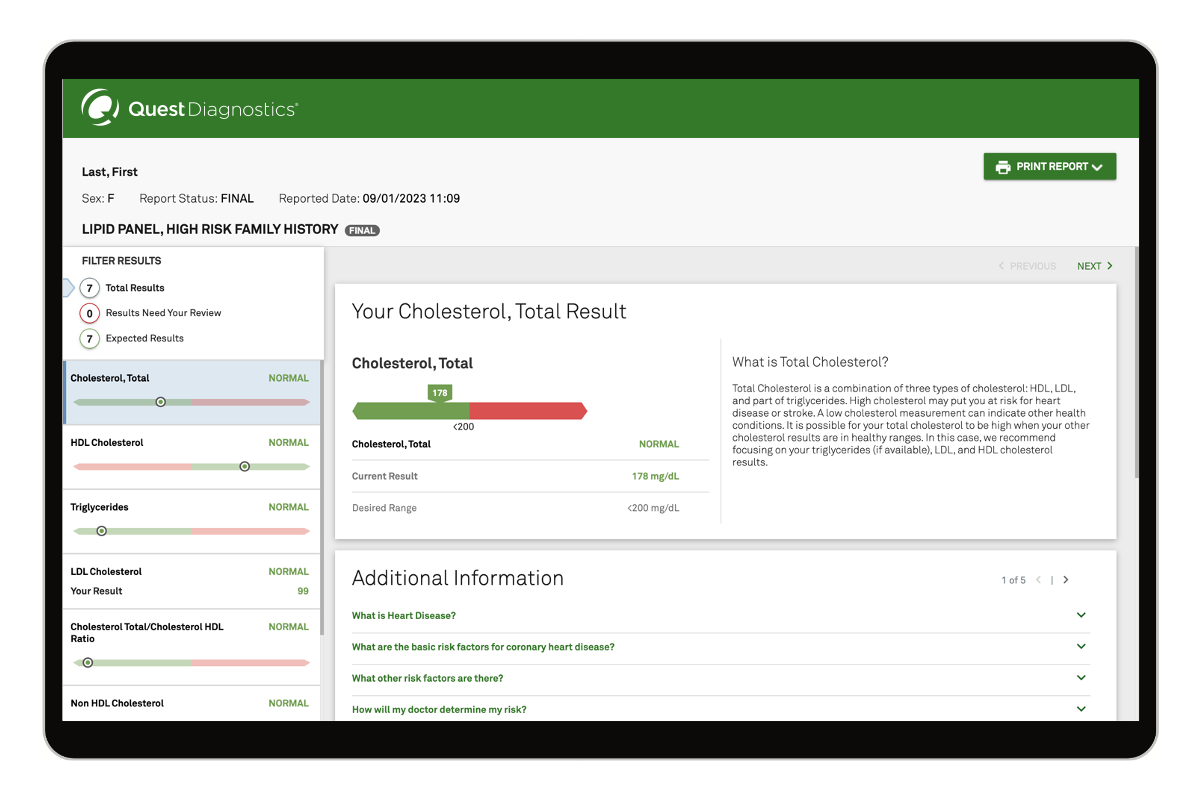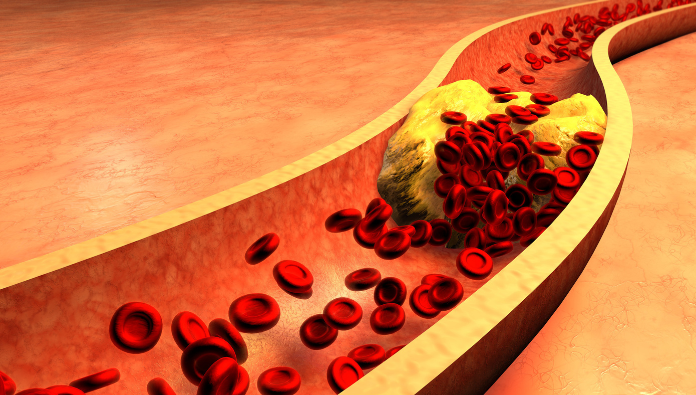High-Risk Heart Health Lipid and Lp(a) Test Panel
Detect if you have high levels of cholesterol and/or Lp(a). Most people with high levels of cholesterol and lipoprotein(a) don't have any symptoms and don't know they are affected. Use these results to have an informative discussion with your healthcare provider to determine next steps. Read moreThis panel is an extended lipid panel that measures total cholesterol, triglycerides, HDL cholesterol, LDL cholesterol (calculated), cholesterol/HDL ratio (calculated), non-HDL cholesterol (calculated), and lipoprotein(a) may help your risk for heart attack, heart disease, stroke, and other diseases of the blood vessels for those with a history of premature ASCVD not explained by major risk factors.
Lipoprotein(a), or Lp(a) is one of a group of lipoproteins that carry cholesterol through the blood. This group of lipoproteins also includes Low-Density Lipoprotein (LDL) and High-Density Lipoprotein (HDL). Lp(a) looks like LDL cholesterol or “bad” cholesterol, but it may be more likely to build up in the walls of your blood vessels, putting you at risk for cardiovascular disease (heart and blood vessel disease). Lp(a) levels are tied to a specific gene in your DNA inherited from your parents. Lp(a) levels appear in your body by age five and remain the same throughout your life. While all ethnic groups are affected, Lp(a) is more common in African Americans and South Asians. Lp(a) levels may also rise in women and remain raised after menopause when estrogen levels decrease. Acute illness may also cause a temporary change in your level.
If the results show you have higher than normal levels of cholesterol, lipoprotein(a), or other abnormal results, you and your healthcare provider can work together to determine next steps.
Buy your own Lipid panel with Lp(a) test online with Quest. No doctor’s visit is required – simply purchase your test, visit a nearby Quest location for sample collection, and get fast results.
Compare Tests
And find the right tests for you.
| Test For |
High-Risk Heart Health Lipid and Lp(a) Test Panel |
Cholesterol (Lipid) Panel |
Total Cholesterol Test |
|---|---|---|---|
| Total cholesterol | |||
| Low-density lipoprotein (LDL) (calculated) | |||
| High-density lipoprotein (HDL) | |||
| Triglycerides | |||
| Cholesterol/HDL ratio (calculated) | |||
| Non-HDL cholesterol (calculated) | |||
| Lipoprotein(a) | |||
|
$85.00
|
$59.00
Learn More
|
$39.00
Learn More
|
High-Risk Heart Health Lipid and Lp(a) Test Panel |
Cholesterol (Lipid) Panel |
Total Cholesterol Test |
|---|---|---|
| Total cholesterol | ||
| Low-density lipoprotein (LDL) (calculated) | ||
| High-density lipoprotein (HDL) | ||
| Triglycerides | ||
| Cholesterol/HDL ratio (calculated) | ||
| Non-HDL cholesterol (calculated) | ||
| Lipoprotein(a) | ||
|
$85.00
|
$59.00
Learn More
|
$39.00
Learn More
|
How it works
questhealth.com offers 100+ consumer-initiated Quest Diagnostics lab tests to empower you to have more control over your health journey. Choose from a variety of test types that best suit your needs.
Cholesterol travels through the bloodstream on particles made of protein and fat (lipoproteins).
Good cholesterol (HDL), bad cholesterol (LDL), and lipoprotein(a) are all lipoproteins that carry cholesterol throughout the body.
Lipoprotein(a), in short Lp(a), is referred to as “genetic” lipoprotein. Lp(a) is an LDL-like particle with an added second protein, apo(a), which acts similarly to a patch of “Velcro” on an LDL particle. It is considered a very “sticky” lipoprotein particle because of the function of the added protein.
Atherosclerotic plaques cause blood vessels to harden and narrow. This restricts the blood flow and oxygen supply to organs. It also increases the risk of blood clots forming. These clots can block the flow of blood, causing heart attack, heart failure, peripheral artery disease or stroke.
Many people may not know they have atherosclerosis because there may not be symptoms. But it can eventually cause problems that are life-threatening. So, it’s important to be aware of cardiovascular disease risk factors and how to manage them.




